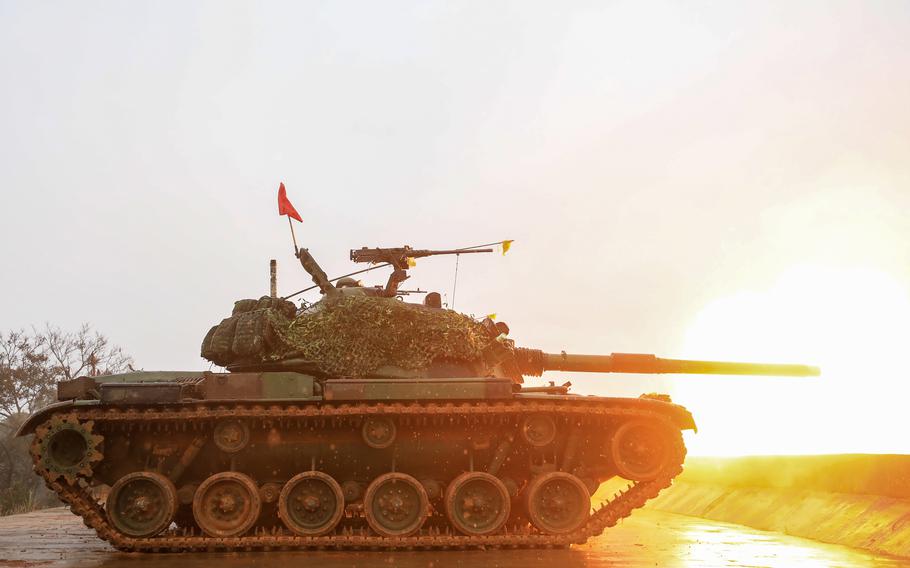
A M60A3 tanks fires during a military combat firing exercise in Hsinchu county, on Tuesday, December 21, 2021. (I-Hwa Cheng/Bloomberg)
Taiwan has proposed stepping up defense spending next year, a move intended to mollify President Donald Trump, who has called on the democracy to do more to protect itself from China’s threats.
The government wants a military budget of NT$949.5 billion ($31.2 billion) for 2026, according to a statement from the cabinet in Taipei on Thursday.
Officials included money for the Coast Guard and veteran pensions in that topline figure for the first time. It represents a nearly 23% increase from the equivalent outlays last year, according to calculations by Bloomberg News.
Part of the reason President Lai Ching-te wants more money for defense is Trump has questioned the self-ruled archipelago’s commitment to protecting itself from China, which sees Taiwan as part of its territory that must be brought under its control by force if needed.
The cabinet said the proposal would raise defense spending to 3.32% of economic output - higher than a 3% target set by Lai in February.
Lai said in a Facebook post after the statement came out that “with defense spending exceeding 3.3% of GDP, Taiwan fully demonstrates its determination to enhance self-defense!”
The final amount Taiwan spends on the military in 2026 will likely be different because the budget will have to go before the legislature, where the opposition holds a slim majority.
Potentially foreshadowing how difficult the approval process for the spending plans might be for the government in Taipei, a special bill that provided billions of dollars of new funding for the military was subjected to weeks of wrangling between opposition and ruling party lawmakers before it was approved last month.
The cabinet also proposed that the government’s overall spending for next year total NT$3.04 trillion on revenue of NT$2.86 trillion.
The yield on the government’s 10-year bonds rose 1 basis point to 1.42% on Thursday. The benchmark Taiex stocks gauge advanced 1.4%, continuing a run propelled by the AI boom.
With assistance from Chien-Hua Wan and Argin Chang.